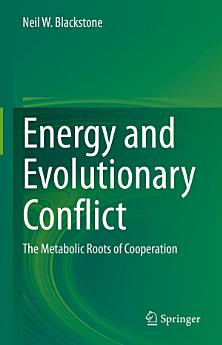Energy and Evolutionary Conflict: The Metabolic Roots of Cooperation
Jul 2022 · Springer Nature
Ebook
124
Pages
reportRatings and reviews aren’t verified Learn More
About this ebook
In the mid- to late-twentieth century, large scientific conflicts flared in two seemingly distinct fields of scientific inquiry. In bioenergetics, which examines how organisms obtain and utilize energy, the chemiosmotic hypothesis of Mitchell suggested a novel mechanism for energy conversion. In evolutionary biology, meanwhile, Wynne Edwards strongly articulated the view that organisms may act for the “good of the group.” This work crystalized a long history of imprecise thinking about the evolution of cooperation. While both controversies have received ample attention, no one has ever suggested that one might inform the other, i.e., that energy metabolism in general and chemiosmosis in particular might be relevant to the evolution of cooperation. The central idea is nevertheless remarkably simple. Chemiosmosis rapidly converts energy, and once storage capacity is exceeded, an overabundance of product has various negative consequences. While to some extent chemiosmotic processes can be modulated, under certain circumstances it is also possible to simply disperse the products into the environment.
This book argues that these two heretofore distinct scientific disciplines are connected, thereby suggesting that a ubiquitous process of energy conversion may underlie the evolution of cooperation and link major transitions in the history of life that have been regarded as mechanistically unrelated.
This book argues that these two heretofore distinct scientific disciplines are connected, thereby suggesting that a ubiquitous process of energy conversion may underlie the evolution of cooperation and link major transitions in the history of life that have been regarded as mechanistically unrelated.
About the author
Neil W. Blackstone is a Professor in the Department of Biological Sciences at Northern Illinois University. His research seeks to employ evolutionary principles to provide a predictive framework for both current ecological interactions and interactions that occurred earlier in the history of life. He has published over 90 articles and 2 books.
Rate this ebook
Tell us what you think.
Reading information
Smartphones and tablets
Install the Google Play Books app for Android and iPad/iPhone. It syncs automatically with your account and allows you to read online or offline wherever you are.
Laptops and computers
You can listen to audiobooks purchased on Google Play using your computer's web browser.
eReaders and other devices
To read on e-ink devices like Kobo eReaders, you'll need to download a file and transfer it to your device. Follow the detailed Help Center instructions to transfer the files to supported eReaders.





